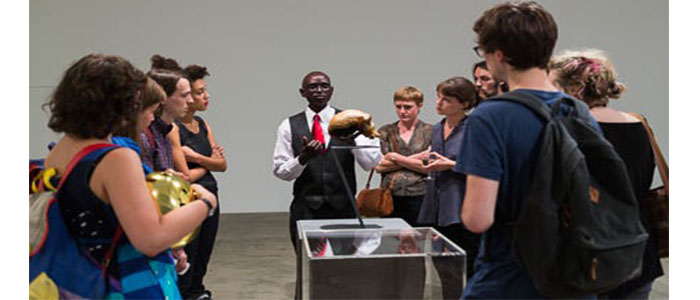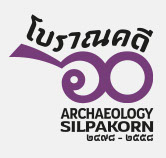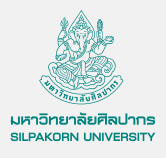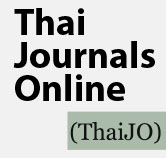
โบรคเคนฮิลล์ : เสียงเพรียกจากแอฟริกา
Broken Hill : A Call from Africa
โดย ธนาวิ โชติประดิษฐ / By Thanavi Chotpradit
Damrong Journal, Vol 13, No.2, 2014
บทคัดย่อ:
การเรียกร้องขอให้คืนโบราณวัตถุที่ถูกนำออกจากประเทศเป็นประเด็นสำคัญประการหนึ่งของการเมืองเชิงวัฒนธรรมในยุคหลังอาณานิคม ตั้งแต่ปี พ.ศ. 2517 เป็นต้นมา สาธารณรัฐแซมเบีย (โรดีเซียเหนือในอดีต) ได้พยายามดำเนินการกดดันให้อังกฤษ อดีตเจ้าอาณานิคมคืนโบราณวัตถุชิ้นสำคัญคือหัวกะโหลก แห่งโบรคเคนฮิลล์ (Broken Hill Skull) ซึ่งถูกนำไปเก็บไว้ที่พิพิธภัณฑ์ประวัติศาสตร์ธรรมชาติ (Natural History Museum) ในลอนดอนตั้งแต่ปี พ.ศ.2464 เรื่องราวของหัวกะโหลกแห่งโบรคเคนฮิลล์ซึ่งเป็นฟอสซิลกะโหลกที่เก่าแก่ที่สุดของมนุษย์โบราณได้กลายเป็นแรงบันดาลใจให้ศิลปินไทย ปรัชญา พิณทองจัดแสดงนิทรรศการชื่อ “โบรคเคนฮิลล์” (Broken Hill) ขึ้นที่ชิเซนฮาล แกลเลอรี (Chisenhale Gallery) ในลอนดอนบทความนี้เสนอการวิเคราะห์ตัวนิทรรศการและภาพยนตร์สั้นเชิงสารคดีเรื่อง “โบรคเคนฮิลล์แมน” เพื่อชี้ให้เห็นบทบาทของศิลปะร่วมสมัยในการเสนอประเด็นต่างๆ ที่รายล้อมพิพิธภัณฑ์ อันได้แก่ สถานะของวัตถุจัดแสดง การสร้างวัตถุจำลอง อำนาจของพิพิธภัณฑ์ต่อตัววัตถุและเรื่องเล่า คติการยึดเอาตะวันตกเป็นสรณะ (Eurocentrism) ที่ปรากฏในงานพิพิธภัณฑ์ตลอดจนมรดกของงานโบราณคดีแบบอาณานิคมและการเรียกร้องให้คืนโบราณวัตถุกลับสู่มาตุภูมิ
ABSTRACT:
Art repatriation or the return of art and cultural objects to their countries of origin is one of the essential elements of postcolonial cultural politics. From 1974 onwards, the Republic of Zambia (formerly Northern Rhodesia) has requested for the return of the Broken Hill Skull, the first early human fossil found in Africa, from the Natural History Museum in London. The skull was taken to England in 1921 by British coloniser’s. The story of the Broken Hill Skull inspired Thai artist, Pratchaya Phinthong, to create an exhibition entitled “The Broken Hill” at Chisenhale Gallery in London. The paper analyses the exhibition and the short documentary film, “The Broken Hill Man”. It investigates the power of museum and its narrative in constituting cultural artefacts and artworks, the issue of original and replica, Eurocentrism in museum and archeological practices, as well as art repatriation.











